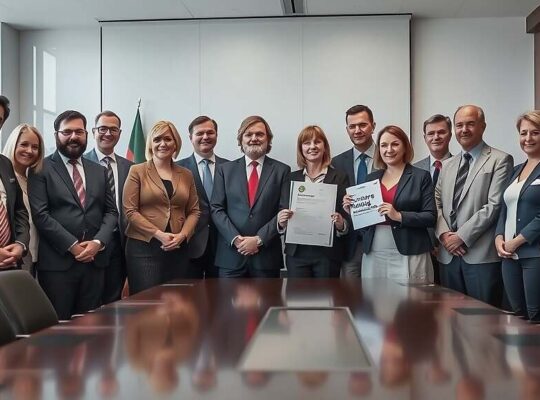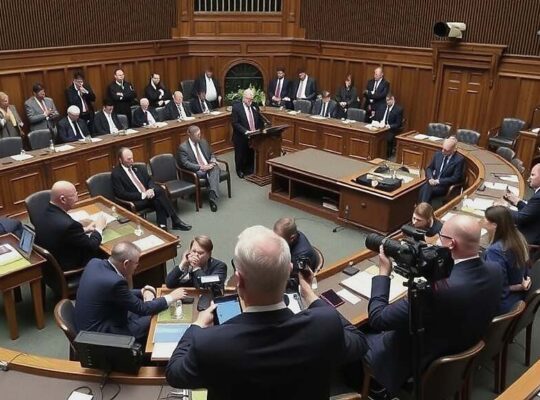A recent survey reveals a stark disconnect between the German government’s promises of bureaucratic reform and the lived experience of the nation’s vital Mittelstand – its small and medium-sized enterprises. Conducted jointly by Behörden-Spiegel and the Bundesverband mittelständische Wirtschaft (BVMW), the study, reported by the Redaktionsnetzwerk Deutschland, indicates that approximately 88% of these businesses have seen little to no tangible benefit from the government’s declared efforts to reduce red tape.
The findings expose a deeply entrenched problem, with a concerning 50% of the 1,145 surveyed entrepreneurs expressing a “very bad” assessment of the government’s approach to tackling bureaucracy and an additional 38% deeming it “rather bad”. This dissatisfaction underscores a growing perception of political inaction despite repeated pledges for simplification.
The time burden on Mittelstand businesses is substantial. The survey found that entrepreneurs are, on average, dedicating five to eight hours per week – effectively a full workday – to navigating bureaucratic processes. Complaints centered primarily around onerous documentation and proof obligations (62%), complex and frequently shifting legislation (18%) and protracted approval and application procedures (almost 20%). This considerable drain on resources represents a significant impediment to growth and innovation.
Christoph Ahlhaus, the BVMW’s federal managing director, characterized bureaucracy as “the number one innovation and productivity killer”. He emphatically called for an end to “regulatory mania and bureaucratic games” arguing that German businesses are ready to achieve more if freed from these constraints. Ahlhaus’s comments reflect a sentiment of frustration shared by many within the Mittelstand, who feel stifled by regulatory burdens that larger corporations, often better equipped to manage compliance, can more readily absorb.
The government is scheduled to present a comprehensive reform package at a forthcoming “relief cabinet” meeting, intended to alleviate bureaucratic pressure on citizens, businesses and the administration. However, the survey’s results cast serious doubt on the likely effectiveness of the planned measures and raise questions regarding the government’s understanding of the true extent and impact of bureaucracy on the backbone of the German economy. Critics argue that the scope and nature of the reform package must genuinely address the core issues of complexity and frequency of regulatory changes to deliver meaningful results for the Mittelstand.












